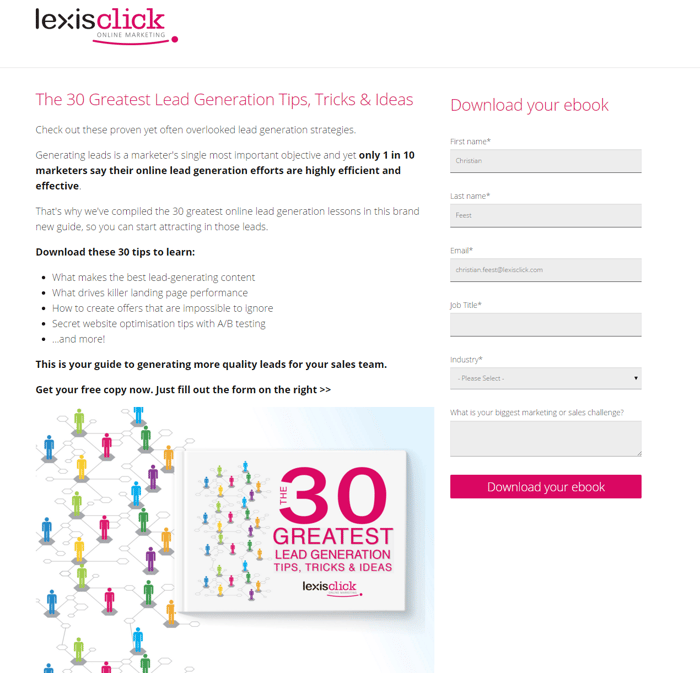
Though PPC may seem a quick and easy way to attract qualified leads, a smart PPC campaign takes a little more time and effort. Putting in a bit more thought now will significantly increase lead generation from your campaign and improve its ROI.
Stats and metrics
The first thing to settle with a PPC campaign are the metrics for success.
What counts as a conversion? For e-commerce sites, that’s easy – a sale. For lead generation campaigns though it’s a bit less clear. Is it a form submission? A resource download? A sale?
Depending on how you define conversion, the cost for each one will vary.

While your ultimate goal from a PPC campaign is to increase sales, defining a conversion as a form submission (or whitepaper download, email sign-up, etc.) will provide a more accurate picture of the effectiveness of your PPC campaign specifically.
After all, if you’re getting thousands of form submissions but very few sales, the visitors are obviously qualified and interested in what you’re offering. In this case you’re generating the leads you want but perhaps your lead nurturing strategy needs some work to improve your conversion to sales.
Keywords
Of course, one of the most important considerations in any PPC campaign is what keywords to use.
Though broad, short-tail keywords will drive a lot of traffic to your site, a great deal of it is likely to be badly qualified and therefore unlikely to convert.
Targeting specific long-tail keywords is likely to generate a lower total volume of traffic but a higher percentage of qualified leads, improving your PPC campaign’s ROI.
For example, if you are a built environment manufacturer specialising in a particular type of concrete, targeting ‘concrete’ as a keyword is going to get visitors who need it for all sorts of reasons.
Instead, targeting ‘reinforced concrete for block of flats’ is very specific and will filter out Joe Bloggs looking to pave his driveway, for example.
What’s more, with ‘concrete’ being such a popular search term there’s likely to be a great deal of competition to get your ad in front of people’s faces. With many search engines pricing keywords via a bidding system, the cost per click is likely to be far higher than the long-tail alternative despite a lower likelihood of conversion.
Finally, don’t forget your buyer personas when researching keywords. A teenage e-commerce customer is likely to use very different search terms than the CEO of a construction company!
Landing page
So you’ve worked out your metrics and sorted your keywords, but you’re not ready just yet!
Many businesses get to this stage and then just direct clicks to the homepage. This is a massive wasted opportunity though.
To really capitalise on visits to your website, you need to direct them to a landing page that is fully optimised for its purpose.
If you’re trying to get visitors to download an eBook in exchange for their contact details, for example, create a dedicated landing page that is specifically designed to achieve this goal.

Using our 30 Greatest Lead Generation Tips, Tricks & Ideas eBook landing page as an example, you can see we’ve removed any unnecessary distractions (even the navigation menu), communicated the benefits of downloading the eBook, and provided a clear call to action down the right hand side.
A landing page should be simple and clear. If you want to maximise conversion, a headline, the benefits and a well-signposted call to action are all you need.
Test and improve
Once you’ve got your PPC campaign going and are generating leads, don’t be afraid to try out different things!
Maybe a different colour on your calls to action? Or a snappier heading? What about a new qualifier for your long-tail keyword?
By tweaking the different features of your PPC campaign and finding out what works and what doesn’t, you’ll get even better qualified leads and an even higher conversion rate. This will mean better ROI, more paying customers and ultimately more profit!
If you’re looking to get the maximum ROI from Google AdWords and pay-per-click, get in touch to discuss your ideas on 01202 788333 or marketing@lexisclick.com.

